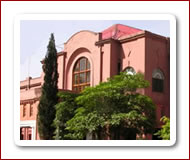| Dairy Club - News & Events | ||||||
Minutes of the 14th Dairy Club (Joint Venture between Alltech and UVAS) |
||||||
The 14th Meeting of Dairy Club (Joint Venture between Alltech and UVAS) was held on Monday June 09, 2012 at Syndicate Room UVAS. Following was the agenda of meeting:
Other Glimpse: Mango Feast (Refreshment): An article “Magnificent mangoes of Pakistan- tremendous export potential” was distributed among the audience. Minutes of meetings are as follows: Presentation by Prof. Dr. Muhammad Abdullah Prof. Dr. Muhammad Adullah delivered lecture on “Heat Stress Management in Indigenous dairy Animals”. During his lecture he discussed:
Thermoneutral Zone
Presentation was beautified with pictorial description which opened a long discussion among audiences. Question/Answer/Comments session: Prof. Dr. Abdullah answered various questions from audiences regarding role of housing, feeding and other factors in heat stress management. Information is available in his presentation. Mr. Peter Wynne appreciated the presentation and asked about the data on local animals. He told that Betane in cattle feed can be helpful in heat stress conditions. Dr. Ali Ahmed emphasized the genetics of the dairy cows. Prof. Dr. Naseem, UVAS and Dr. M. Athar, Hitech Feeds emphasized on type housing. Dr. M. Athar, Hitech Feeds told that Chromium Propionate addition in cattle feed can be helpful in relieving heat stress. Major Ilyas explained the importance of roof slope gradient with respect to its width for proper ventilation. Dr. Mumtaz, Gourmet Foods explained how environmentally controlled sheds can be helpful in heat stress. Khurram Ihsan told that feed should be offered in cooler times of the day to avoid excessive heat stress.
Note: The Meeting in August has been cancelled due to the month of Ramzan therefore the 15th meeting will be held in September. |
||||||



